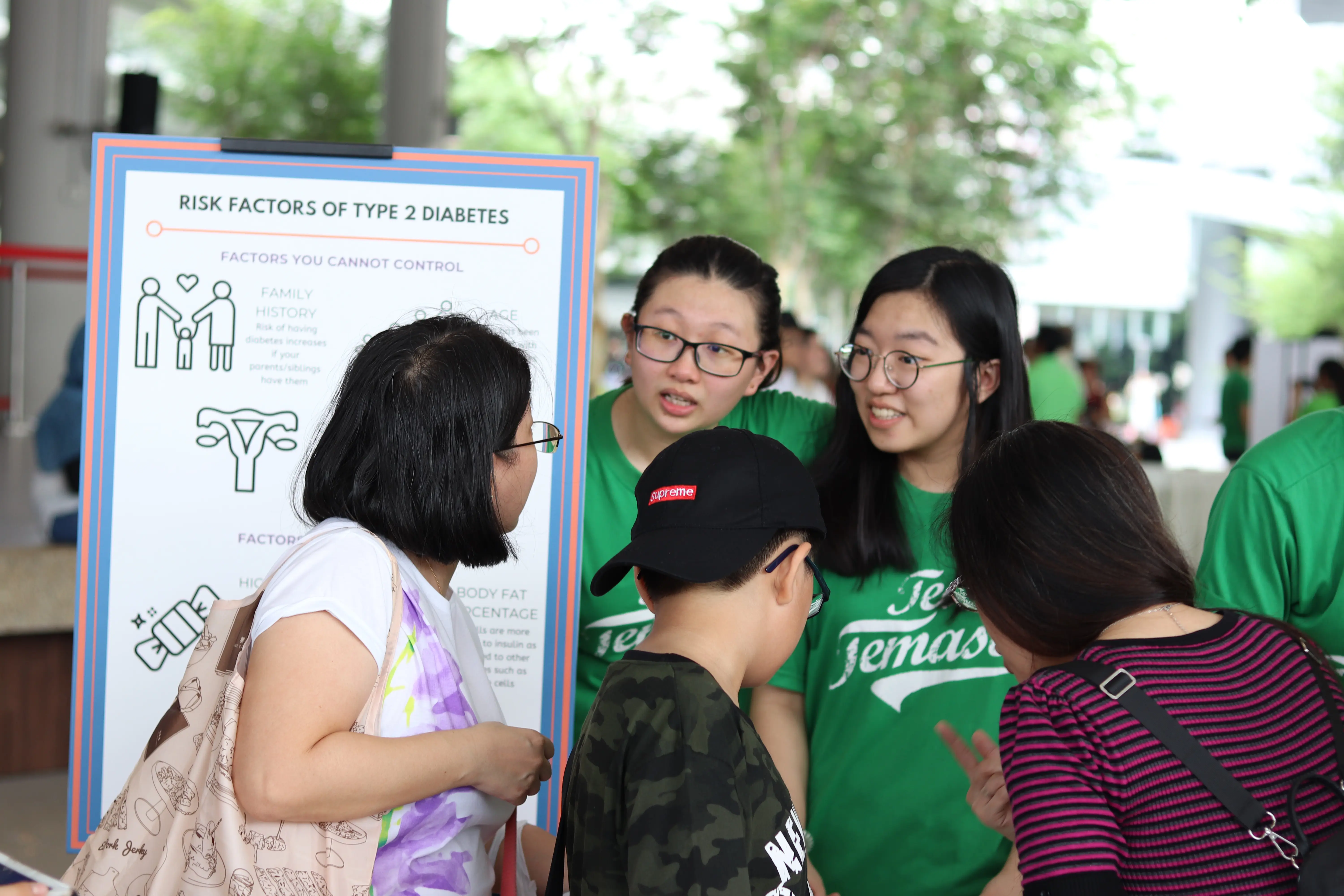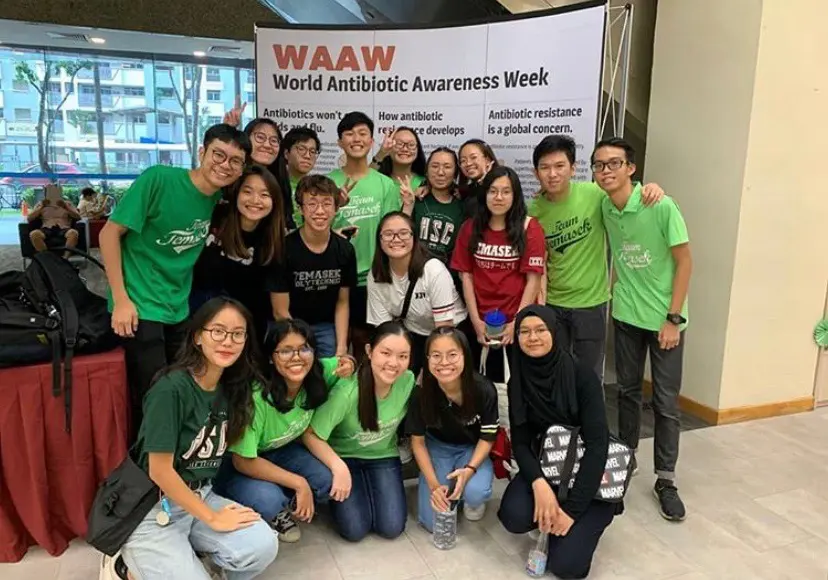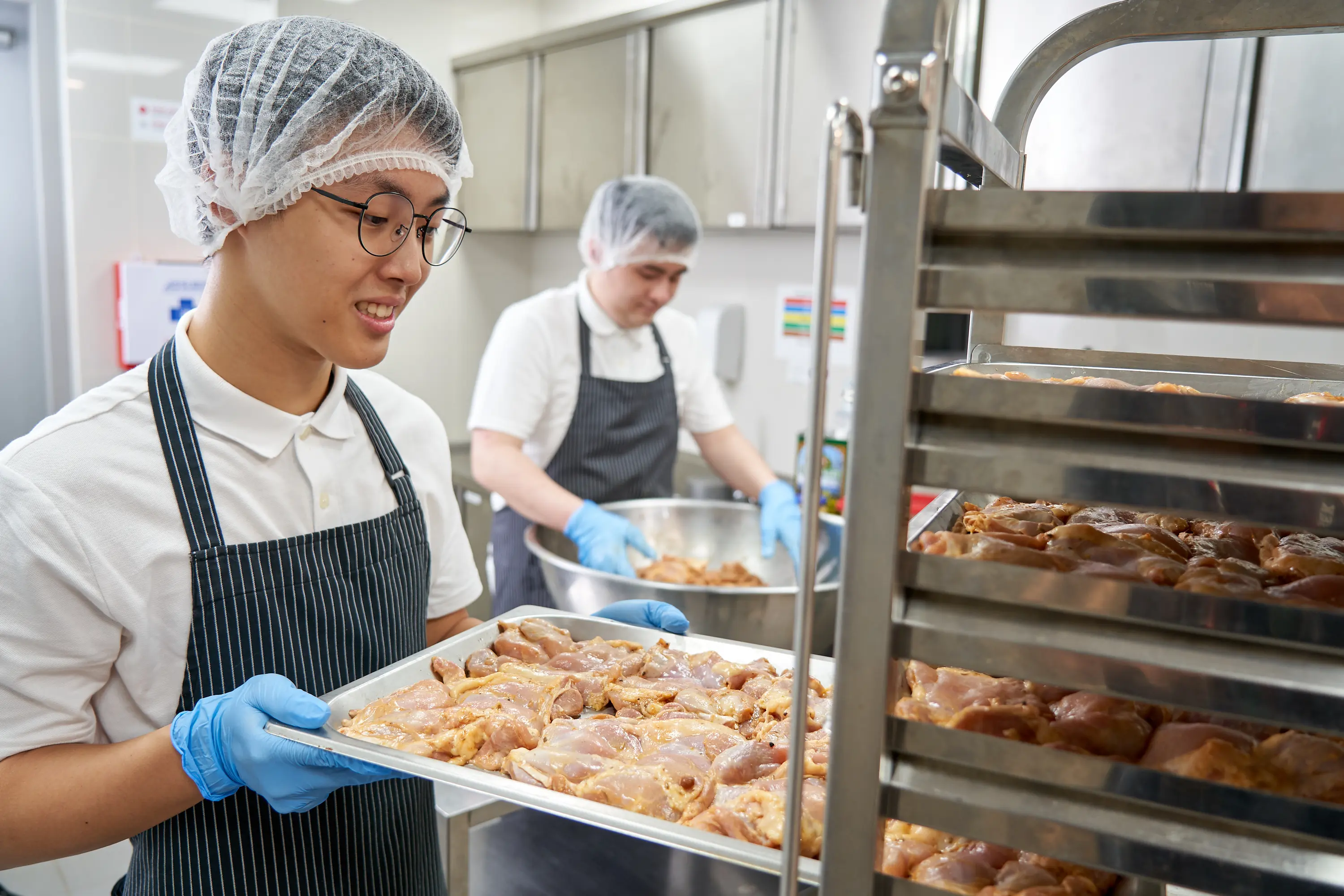Lectures
E-lectures may be conducted synchronously on Microsoft Teams or asynchronously through e-recordings. Alternatively, face-to-face lectures are conducted in groups of about 100 students and are usually delivered in lecture theatres.
Tutorials
Tutorials are conducted in groups of about 25 students. Tutorial worksheets, where appropriate, will be given one week in advance for students to prepare for the lesson. During tutorials, students will participate in activities outlined by their lecturers. Activities could include group discussions and peer-tutoring sessions among the students themselves. Students may be asked to present their findings or mini-projects to the class.
Laboratories
Laboratory sessions are held for all science subjects. They usually last for 2 to 3 hours. Students are expected to participate in hands-on activities such as experimental techniques, experimental tests and project work (if relevant). Students should observe all laboratory rules and regulations and be aware of safety issues at all times whilst in the laboratory.
Problem-based Learning (PBL)
Problem-based learning (PBL) is a teaching and learning methodology that encourages students to enquire, problem-solve and work effectively in teams. The problem-driven curriculum in PBL captures the students’ attention and sustains their academic interest by challenging them to seek solutions to given problem scenarios from the multiple perspectives offered by the team members. The essence of enquiry requires them to seek evidence to support, refute or throw doubt on a hypothesis or proposed solution. This process helps the students to develop an open but questioning mind much valued in the science classroom.
Class Duration
Although each lecture/tutorial is allocated a time slot of 1 hour, the lesson proper lasts for about 50 minutes. The remaining 10 minutes are for students to hand in their assignments and transit from one class to the next so as to ensure that all classes start on time.
Class Attendance & Punctuality
Students must satisfy a minimum of 85% attendance. Students who exceed the maximum number of non-attendance sessions could be given a Pass/Fail grade only. Students will be marked as ‘Late’ once they report beyond the stated start time of the lesson. Both ‘Late’ (‘L’) and ‘Absent’ (‘A’) records will be considered as non-attendance and counted towards the computation of attendance requirement for non-graded pass penalty.
Submission of Assignments
Assignments should be handed in on time. If a student has a valid medical certificate (MC) or leave of absence (LOA), the assignment should be handed in on the day that the student is back at school. You can refer to each subject's study guide for the guidelines regarding the submission of assignments for tutorials or laboratory classes.
Class Participation
Class participation is an important factor that contributes towards the final assessment of a student in a particular subject. Factors that count towards the assessment of class participation include a positive attitude towards learning, an inquiring mind, active participation during classes, attentiveness and a motivation to do supplementary reading to complement the information provided in lecture notes.
Absence from class
All leave is to be applied using the TP Online Student Services.
To apply for Leave of Absence (LOA):
- Application for leave of absence (e.g. participation in a school-based performance, official events or competition etc.) must be submitted, with supporting documents, at least one week before the date of absence.
- Students must inform the subject tutors concerned and obtain the Care Person’s recommendation and Course Manager’s approval.
- Students must retain original supporting documents for 6 months.
- Log into TP Online Student Services and click on Attendance -> Apply / Submit LOA. At the LOA Summary Page, click Apply LOA.
- Fill in your application details, and attach a picture of your LOA documents using your phone’s camera.
- Check that the picture of your LOA documents is clear and that the information provided in your application is correct, and submit your application.
- You will see the application reflected in the LOA Summary page and receive a confirmation of the LOA submission via email.
- Monitor your email for the outcome of the LOA application.
To submit Medical Certificate (MC):
- During the semester, all medical certificates must be submitted within 2 working days, excluding Saturday, Sunday and Public Holidays from the end of the MC period.
- Only medical certificates issued by medical practitioners registered with the Singapore Medical Council will be accepted.
- Students must retain the original MC for 6 months and may be required to submit the original MC to the school for viewing upon request.
- Log into TP Online Student Services and click on Attendance -> Apply / Submit MC. At the MC Summary Page, click Apply MC.
- Fill in your application details, and attach a picture of your MC using your phone’s camera.
- Check that the picture of your MC is clear and that the information provided in your application is correct, and submit your application.
- You will see the application reflected in the MC Summary page and receive a confirmation of the MC submission via email.
- Monitor your email for the outcome of the MC application.
Assessment Methods
Various methods of assessment are used in the school. These include tutorial assignments, worksheets, practical reports, laboratory techniques, oral presentations, project interviews and reports, quizzes/tests and semestral examinations. They may be used individually or in part with other methods for lecturers to gauge the students’ understanding of the subject more accurately. More importantly, they also provide feedback for students to analyse their own strengths and weaknesses and to monitor their progress in a particular subject. Other reasons for conducting assessments are to ascertain a student’s ability to progress from one part of the course to another (e.g. from one semester to the next), to grant honours/awards to outstanding students and to confirm students’ competency in a !eld of knowledge or practice.
Absence from examination
Students who are absent from examination due to extenuating circumstances may submit an appeal with supporting documentary evidence to the Academic Affairs for special consideration, no later than forty-eight hours from the start time of the !rst affected examination paper (excluding Saturday, Sunday and Public Holidays). Where the reason for absence from examination is known beforehand, students must submit their application for leave of absence at least 3 weeks before the start of each Semestral Examination.
The valid reasons include:
a) Bereavement of immediate family members, including spouse, parents, grandparents, siblings and children
b) Medical & hospitalisation leave
c) Participation in approved international/national events
d) Civil emergencies such as "oods or disruptions to national transportation system
e) Special cases such as accidents are subject to special consideration on a case-by-case basis.
Students whose appeal for absence from examination are successful will be arranged to sit for Special Assessment (for diploma students) or Alternative Assessment (for PFP students) for the affected paper. The marks obtained for the paper attempted at Special Assessment or Alternative Assessment will be marked down by ONE grade and it will take the place of that for the Semestral Examination. The down-one-grade rule WILL NOT be applied to approved absences granted due to hospitalization leave, contagious diseases, dengue fever, bereavement of immediate family member and representing in national/international event.







